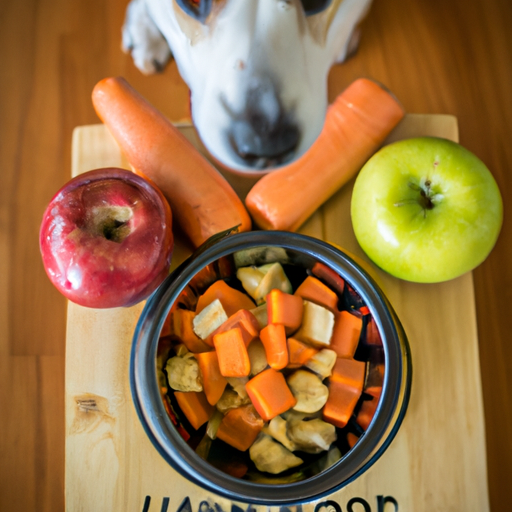As a caregiver, you naturally want the best for your canine companion. The right food is a crucial part of ensuring your dog’s optimal health and wellbeing. Let’s talk about what food is good for dogs.
1. Understanding Your Dog’s Nutritional Needs
First and foremost, it’s essential to understand that your dog’s nutritional needs differ from yours. Dogs are primarily carnivorous but have evolved to digest carbohydrates and certain fruits and vegetables as well.
- Protein: Dogs need a diet high in quality animal proteins. These proteins provide the essential amino acids necessary for growth and maintenance of all body tissues.
- Fats: Fats are the most concentrated source of energy for dogs. They provide essential fatty acids and aid in nutrient absorption.
- Carbohydrates: Although dogs do not require carbohydrates in their diet, they can be a valuable source of energy and fiber.
- Vitamins and Minerals: Dogs also need a variety of vitamins and minerals for optimal health.
| Nutrient | Purpose |
|---|---|
| Protein | For growth and maintenance |
| Fats | For energy and nutrient absorption |
| Carbohydrates | For energy and fiber |
| Vitamins and Minerals | For various physiological functions |
2. High-Quality Commercial Dog Food
High-quality commercial dog food is designed to provide a balanced diet for dogs. They often include all the essential nutrients your dog needs. However, not all dog foods are created equal.
- Look for the ‘Complete and Balanced’ label: This means the food meets the nutritional standards established by the Association of American Feed Control Officials (AAFCO).
- Check the ingredients: The first ingredient should be a high-quality source of animal protein, such as chicken or beef.
3. Safe Fruits and Vegetables
Some fruits and vegetables can be a great addition to your dog’s diet, providing additional nutrients and fiber.
- Apples (without seeds or core)
- Blueberries
- Carrots
- Green beans
- Pumpkin
- Sweet potatoes
4. Unsafe Foods for Dogs
Just as important as knowing what to feed your dog is knowing what not to feed them. Certain foods can be toxic to dogs.
- Chocolate
- Garlic and onions
- Grapes and raisins
- Xylitol (a sugar substitute)
- Alcohol
5. Homemade Dog Food
Making your dog’s food at home can be a good way to control the quality of the ingredients. However, it’s essential to consult with a veterinarian or a canine nutritionist to ensure the meals are nutritionally balanced.
Frequently Asked Questions
Q: Can I feed my dog a vegetarian or vegan diet?
A: Dogs can technically survive on a carefully balanced vegetarian or vegan diet. However, it’s challenging to ensure they’re getting all the nutrients they need. It’s recommended to consult with a veterinarian before making this decision.
Q: How often should I feed my dog?
A: Most adult dogs should be fed once or twice a day. Puppies usually require several small meals throughout the day.
Q: Can I give my dog bones to chew on?
A: Some bones can be dangerous for dogs because they can splinter and cause injuries. It’s best to only give your dog bones that are specifically made for chewing.
Q: How much should I feed my dog?
A: The amount of food your dog needs depends on their size, breed, age, and activity level. Your vet can help you determine an appropriate amount.



